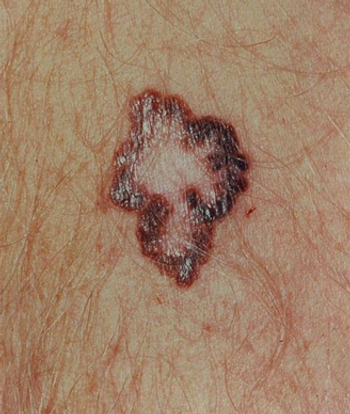
The PD-1 inhibitor MK-3475 is continuing to show activity and long-term responses in patients with metastatic melanoma, according to results presented at the International Congress of the Society for Melanoma Research.

Your AI-Trained Oncology Knowledge Connection!


The PD-1 inhibitor MK-3475 is continuing to show activity and long-term responses in patients with metastatic melanoma, according to results presented at the International Congress of the Society for Melanoma Research.
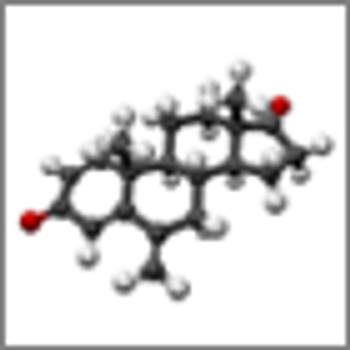
Researchers have found that the breast cancer drug exemestane may also protect cells against DNA damage from UV radiation as well as damage that occurs during inflammation and oxidative stress.

Two independent research groups have identified resistance mutations in the gene that encodes the estrogen receptor in some cases of metastatic breast cancer.

A recent study shows that men who were overweight or obese at the time of their prostate cancer diagnosis were more likely to die from their disease compared with their healthy weight counterparts.

An analysis of four randomized clinical trials from Europe shows that HPV-based screening resulted in a greater long-term protection from invasive cervical cancer compared with a Pap test.

This slide show features highlights from the 2013 European Cancer Congress, including trials on PSA screening, melanoma, ovarian cancer, HER2-positive breast cancer, lung cancer, and colorectal cancer.
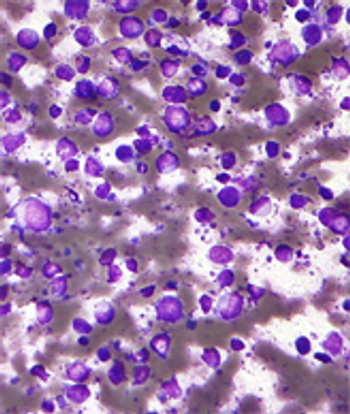
An 8-year study in patients with intermediate- to high-risk non-Hodgkin lymphoma shows that an autologous transplant following induction chemotherapy improves survival in high-risk patients.

Patients with early-stage breast cancer who received radiation therapy had a higher risk of heart disease, due to the exposure of their heart tissue to the treatment, according to a 48-patient study by Columbia University.

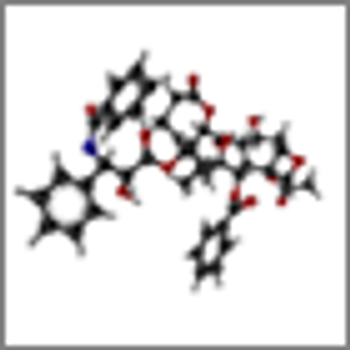
The combination of two chemotherapy agents-nab-paclitaxel and gemcitabine-improves survival for patients with metastatic pancreatic cancer, according to the results of a phase III trial.

A blood test that detects a combination of proteins can distinguish between early lung cancer and noncancerous lung nodules, according to a new study.

New ASCO and CAP guidelines recommend HER2 testing for all newly diagnosed breast cancer patients with either early-stage invasive or metastatic disease.

Men aged 75 and older generally do not benefit from annual PSA screening, but a new study shows that Medicare spending on PSA screening for this population continues.

A new study shows that additional RAS mutations can confer resistance to panitumumab, an epidermal growth factor receptor (EGFR) antibody approved for treating metastatic colorectal cancer.
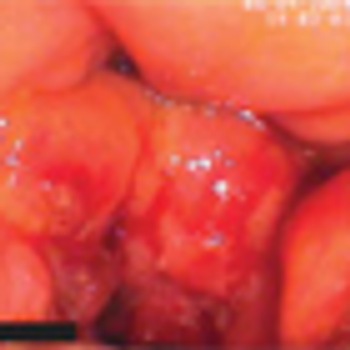
The results of a phase III randomized trial found that the anti-angiogenesis antibody ramucirumab improved survival in advanced, previously treated gastric cancer.

Researchers used an unbiased bioinformatics approach to identify a class of drugs currently used for non-cancer treatment that could be used to treat small-cell lung cancer, a cancer type for which there are few treatment options.

Taking advantage of the copious amounts of data generated from The Cancer Genome Atlas (TCGA), researchers have created a comprehensive map of the viruses present in a wide range of cancer types.

A specific pair of proteins more often found in aggressive smoking-related lung adenocarcinomas could serve as a prognostic biomarker for aggressive disease.

The FDA today granted pertuzumab (Perjeta) accelerated approval for the treatment of patients with HER2-positive early stage breast cancer prior to surgery who are at high risk for recurrence or metastasis.

Abiraterone acetate in combination with prednisone delays pain progression as well as health-related quality of life compared with prednisone alone in prostate cancer patients, a new study shows.

Colorectal cancer patients who have early tumor shrinkage after first-line treatment with chemotherapy plus cetuximab may be more likely to have long-term response to therapy, according to an analysis of two large clinical trials.

In the VICTOR trial, patients with PI3KCA-positive colorectal cancer who took aspirin had a lower cancer recurrence compared to those with a wild-type PI3KCA gene.

Ten-year follow up two large randomized trials in the UK show that less frequent but higher dose radiotherapy regimen are as safe and effective as the standard regimen of more frequent lower doses for women with early breast cancer post-surgery.

A large study shows a difference in the cancer outcomes of married and unmarried individuals, finding that those who are married are less likely to be diagnosed with metastatic disease and to die of their cancer compared with those who are unmarried.

The combination of two oral targeted agents, dabrafenib (Tafinlar) and trametinib (Mekinist), has been given a priority review by the FDA for the treatment of BRAF V600-positive metastatic melanoma.

In a phase III trial, ipilimumab increased the overall survival of men with advanced castration-resistant prostate cancer when used with a single dose of radiotherapy by 1.2 months, but the results were not statistically significant.

Researchers have identified a novel pathway that promotes bone metastasis of small-cell lung cancer (SCLC). The study is in mice, but points to a potential target that could be exploited to control or prevent metastatic disease.

A new study in early-stage melanoma patients shows that “self-eating” cells, or autophagy, can keep the cancer in check and may lead to a better prognosis.

Researchers have now identified a 3-gene signature that could indicate whether a particular early-stage prostate cancer is indolent. The test relies on a tissue sample, a PSA test, and a histology assessment.

The ratio of two protein levels may predict clinical benefit of EGFR inhibitors. Low levels of a protein called Mig6 (mitogen-inducible gene 6) and high levels of EGFR corresponded to a higher clinical response rate and progression-free survival in a small prospective cohort of lung cancer patients treated with the anti-EGFR therapy gefitinib.